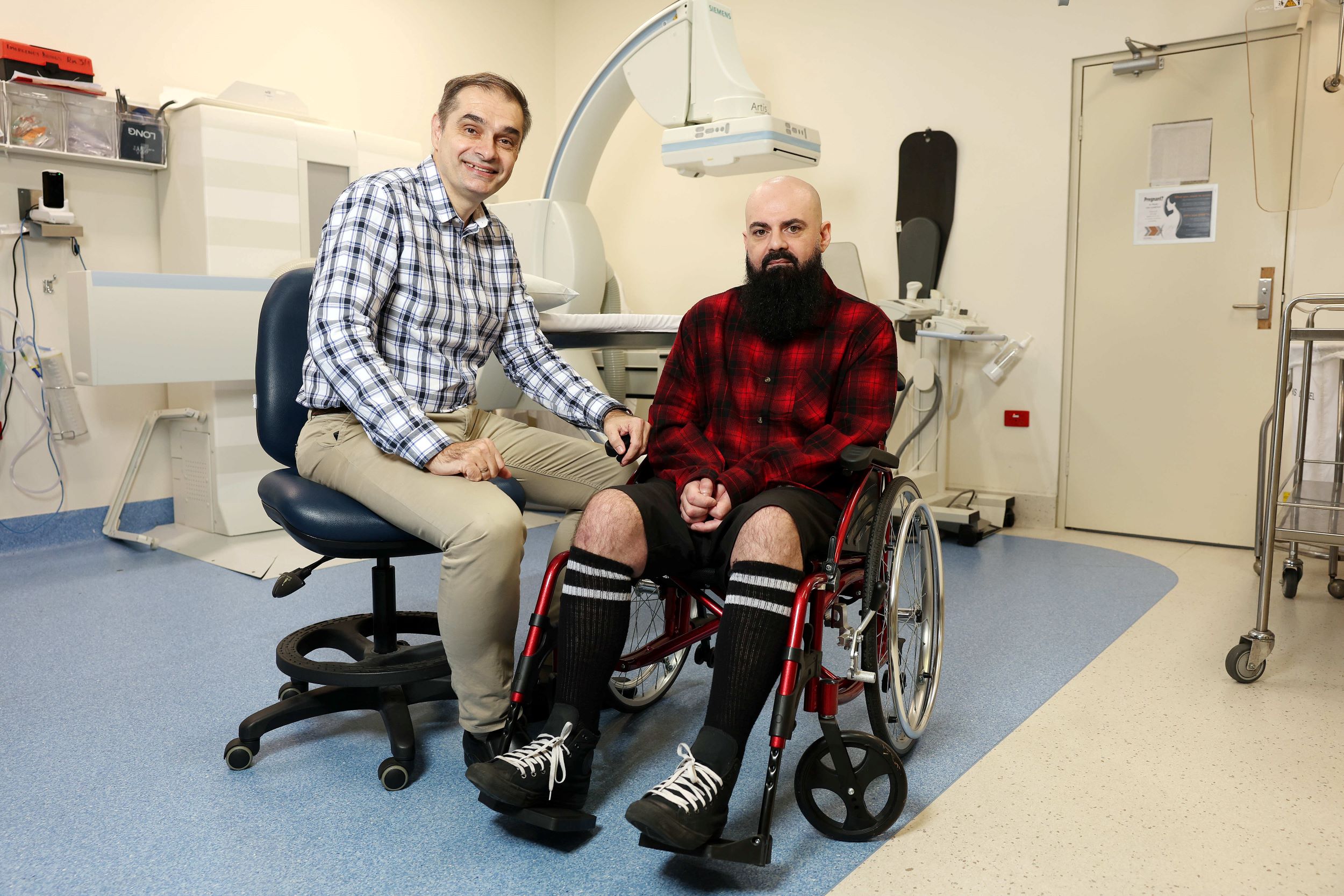
New hope for MND patients
Concord hosts first public hospital use of revolutionary treatment.

A breakthrough drug being used to treat a Concord Hospital patient offers a “real glimmer of hope” for sufferers of motor neurone disease (MND).
Neurologist Professor Steve Vucic says the development of the drug Tofersen – which he is using to treat patient Luca Cacciotti – is a landmark moment in the fight against MND. He says the results of a study published in the New England Journal of Medicine showed remarkable improvements.
“It showed that patients that received Tofersen for a longer period of time did better in terms of disease, muscle weakness, and other clinical symptoms,” said Professor Vucic, Director of Concord’s Brain and Nerve Research Centre.
“In actual fact, some of them stabilised and started to improve, which was a remarkable result.”
Professor Vucic stressed those early results needed to be validated in a recently completed phase three study but said he was excited about the potential for the drug.
Tofersen is a genetic therapy that targets a specific genetic abnormality in some patients with MND. It binds to a protein produced by a gene called superoxide dismutase 1 (SOD1), preventing the protein from causing neuro degeneration.
Mr Cacciotti said his life was turned upside-down when he was diagnosed with MND late last year. "It was a huge hit. It was like a sledgehammer - my life changed forever in that moment," he told The Saturday Telegraph in a recent interview.
Mr Cacciotti said Tofersen’s benefits far outweighed the discomfort of the drug being injected by Professor Vucic via a lumbar puncture.
"The pain is nothing in comparison to the outcome," he said.
Professor Vucic said Tofersen would be suitable for a small proportion of MND patients but could hold the key to treatment for all sufferers of the condition.
“[Tofersen] would affect about 1 percent of all of the patients that we see,” he said.
“So, it's a small proportion but it's a very good model for how to progress further.
"It's really a movement towards what we refer to as precision medicine … If we can identify what is the predominating cause [of MND] in a specific patient, we can then tailor treatment to them.”
Professor Vucic said the availability of Tofersen had already transformed his practice.
“I now do a genetic test on all of my patients that come in with motor neurone disease, and explain to them why I'm doing it,” he said.
“And if I identify a person with an SD1 mutation, then I would offer them the stream. And if they're suitable for it … you would offer it to them … So that's how it's transformed what we do and that's quite exciting. We've been forced into precision medicine, which is fantastic.”